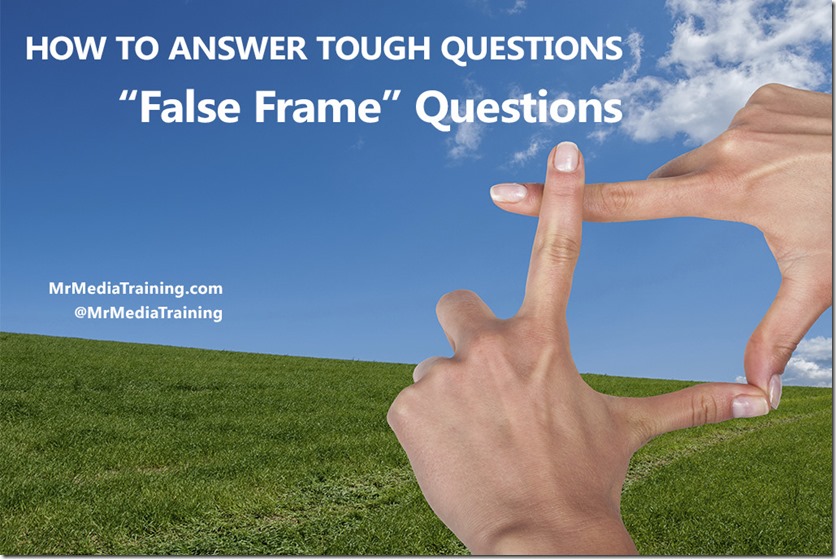How To Answer Tough Questions #3: "False Frame" Questions
This is the third post in an occasional series about answering tough questions during media interviews, presentations, and job interviews.
I once worked with an executive from a manufacturing company that was about to introduce an innovative safety feature into one of its products.
The executive was excited. He knew their competitors were several years away from being able to introduce the same technology into their products, and he was certain it would give his company a meaningful competitive advantage.
Despite his excitement, he was nervous. Touting the new feature would lead to questions from customers—and reporters—about whether the millions of products the company had already sold without the new safety device were less safe, if not downright unsafe.

The question he feared most looked something like this:
“What would you say to one of your customers who purchased one of your older—and therefore less safe—products?”
To help the executive develop an answer, I asked whether he viewed the older products as unsafe. “Absolutely not,” he said. “Best in the marketplace. But the new ones are even safer.”
Based on his response, I immediately categorized the question as a “false frame” question, because it contained a logical-sounding but incorrect assumption. The question’s frame was wrong, meaning we’d have to create a new and more accurate one.
To do that, I advised him to quickly rebut the false frame and then immediately make a positive and confident case that looked something like this:
“I disagree with that premise. A car with six airbags is safe; a car with eight is that much safer. Our customers should know that the products of ours they already own are among the safest in the marketplace—and that when they decide to get a new model, it will include yet another great safety feature.”

As another example, I once worked with a venture capitalist—some would call him a “vulture” capitalist—who purchased underperforming businesses, often as part of a hostile takeover. Like many people, I viewed his work with suspicion, and asked him the following question during our practice interview:
“So you’re a predator who scoops up vulnerable companies and sells them for parts, no matter the human cost?”
He started his answer by denying he was a predator, which is rarely a good idea, since his response repeated a pejorative term aimed at himself. After discussing his response, we recognized the original question as a false frame and recast his response:
“No. I’m an entrepreneur. Like any good businessperson, my goal is to buy low and sell high. When a company is failing, I can buy it for a fraction of its value—and oftentimes, that allows me to save a company that otherwise would have gone out of business within weeks.”
To make sure you don’t miss the next installment of this series, sign up for our email newsletter here.



Great stuff, Brad!
Here’s another way to put the point:
“I’m not a vulture. I’m a phoenix, helping businesses rise from the ashes.”